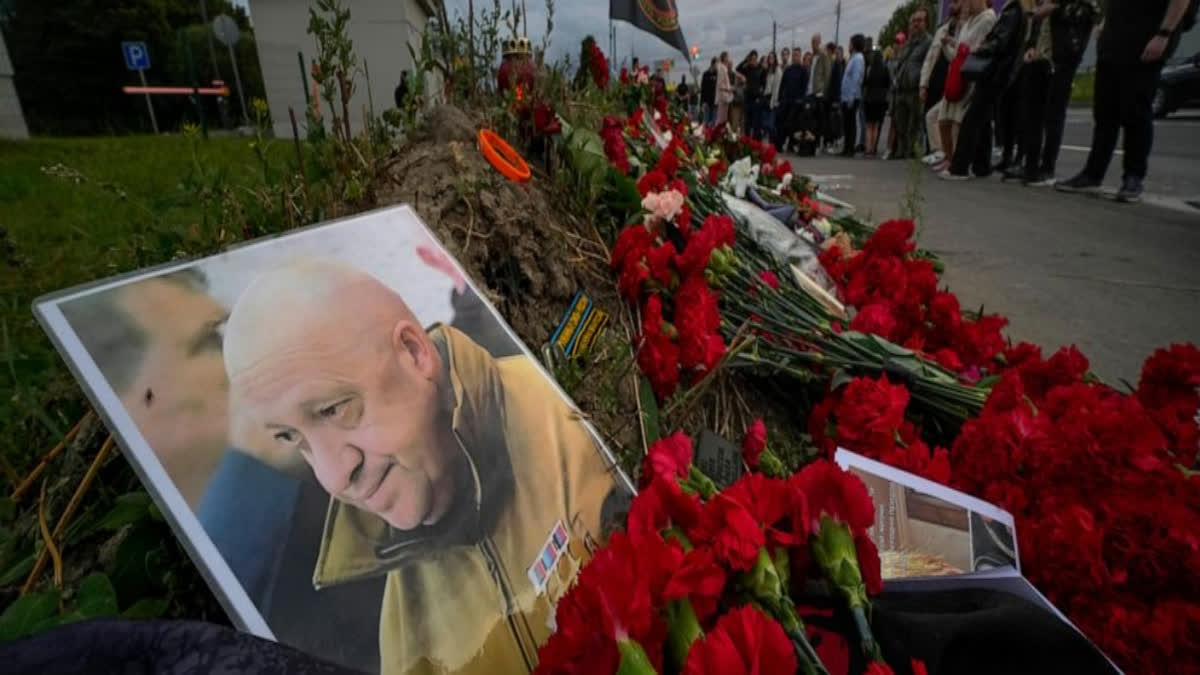Moscow: President Vladimir Putin's spokesperson, Dmitry Peskov, on Friday rejected allegations that the Kremlin was behind a plane crash that is presumed to have killed mercenary leader Yevgeny Prigozhin, whose brutal fighters were feared in Ukraine, Africa, and Syria, and conducted a brief but shocking mutiny in Russia two months ago. Prigozhin, who was listed among those on board the plane, was eulogized by Putin, even as suspicions grew that the Russian leader was behind a Wednesday crash that many saw as an assassination.
A preliminary US intelligence assessment concluded that the plane was downed by an intentional explosion. One of the US and Western officials who described the initial US assessment said it determined that Prigozhin was very likely targeted and that the explosion falls in line with Putin's long history of trying to silence his critics.
The officials, who spoke on the condition of anonymity because they were not authorized to comment, did not offer any details about what caused the explosion, which was widely believed to be vengeance for the mutiny in June that posed the biggest challenge to the Russian leader's 23-year rule. Right now, of course, there are lots of speculations around this plane crash and the tragic deaths of the passengers of the plane, including Yevgeny Prigozhin," Peskov told reporters during a conference call. "Of course, in the West, those speculations are put out under a certain angle, and all of it is a complete lie.
Asked by The Associated Press whether the Kremlin has received an official confirmation of Prigozhin's death, Peskov referenced Putin's remarks from a day earlier: He said that right now all the necessary forensic analyses, including genetic testing, will be carried out. Once some kind of official conclusions are ready to be released, they will be released. Britain's defence ministry said on Friday that the presumed death of Russian mercenary leader Yevgeny Prigozhin in a plane crash could destabilize the Wagner Group,
The demise of Prigozhin almost certainly would have a deeply destabilizing effect on the Wagner Group. His personal attributes of hyperactivity, exceptional audacity, a drive for results, and extreme brutality permeated Wagner and are unlikely to be matched by any successor, the ministry wrote in a statement. Wagner mercenaries were key elements of Russia's forces in its war in Ukraine, particularly in the monthslong fight to take the city of Bakhmut, the conflict's most gruelling battle. Wagner fighters also have played a central role in projecting Russian influence in global trouble spots, first in Africa and then in Syria.
When it comes to the future (of Wagner), I can't tell you anything I don't know, Peskov said. The jet crashed Wednesday soon after taking off from Moscow, carrying Prigozhin, six other Wagner members, and a crew of three, according to Russia's civil aviation authority. Rescuers found 10 bodies, and Russian media cited anonymous sources in Wagner who said Prigozhin was dead. But there has been no official confirmation.
President Joe Biden, speaking to reporters Wednesday, said he believed Putin was likely behind the crash. I don't know for a fact what happened, but I'm not surprised, Biden said. There's not much that happens in Russia that Putin's not behind. The passenger manifest also included Prigozhin's second-in-command, whose nom de guerre became the group's name, as well as Wagner's logistics chief and at least one possible bodyguard.
